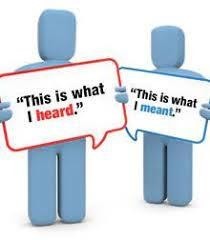A nurse is caring for a client who has just died and practiced the Islamic faith. Which of the following cultural practices should the nurse expect?
The client's body should be placed on the floor.
The client's oldest child will bathe the body.
The client's face should be turned toward Mecca.
The client's body will be adorned with amulets.
The Correct Answer is C
A. The client's body should be placed on the floor: This is not a specific cultural practice in Islam. In Islamic tradition, the deceased person is usually placed on a raised surface, like a table or bed, to allow family and friends to gather around for prayers and final respects.
B. The client's oldest child will bathe the body: This is not a specific cultural practice in Islam.
In Islamic tradition, the body is usually washed by individuals of the same gender who are experienced in the ritual washing of the deceased, known as "Ghusl."
C. The client's face should be turned toward Mecca: Correct. In Islamic tradition, when a person dies, it is customary to position the body with the head facing the Kaaba in Mecca, which is the holy city in Islam and the direction toward which Muslims pray.
D. The client's body will be adorned with amulets: This is not a specific cultural practice in Islam. While some individuals in various cultures may use amulets or charms for protection, it is not a universal Islamic practice for the deceased.
Nursing Test Bank
Naxlex Comprehensive Predictor Exams
Related Questions
Correct Answer is B
Explanation
A: Incorrect. Leaning on the crutches for support while standing still is not the correct way to use crutches. It can lead to discomfort and instability.
B: Correct. The client should advance the unaffected leg first while climbing stairs when using crutches. This technique ensures better stability and safety during stair ascent.
C: Incorrect. Standing 5 cm (2 in) from the front of a chair before sitting is not directly related to the use of crutches.
D: Incorrect. Bearing weight on the axilla while standing in the tripod position is not the correct way to use crutches. The tripod position is used for resting, not weight bearing.

Correct Answer is B
Explanation
A. Restrict the client's visitors to the immediate family: While tuberculosis is a communicable disease, restricting visitors to the immediate family is not a standard precautionary measure. Visitors should be educated about infection control measures and individuals with active tuberculosis
may need to wear masks in certain situations.
B. Assign the client to a negative pressure airflow room: Correct. Clients with active tuberculosis should be placed in a negative pressure airflow room to prevent the spread of infectious airborne particles to other areas of the facility. Negative pressure ensures that air from the room does not flow to other parts of the facility.
C. Discard personal protective equipment outside the client's room: Personal protective equipment (PPE) should be removed and discarded according to facility policy, which often includes removing PPE inside the client's room and properly disposing of it afterward. The nurse should follow standard precautions for infection control.
D. Have the client wear a HEPA mask during transportation throughout the facility: While wearing a HEPA mask may be necessary for clients with tuberculosis, it is not related to the initial admission process. Clients with active tuberculosis may be asked to wear a HEPA mask during transportation when they need to leave their negative pressure room.
Whether you are a student looking to ace your exams or a practicing nurse seeking to enhance your expertise , our nursing education contents will empower you with the confidence and competence to make a difference in the lives of patients and become a respected leader in the healthcare field.
Visit Naxlex, invest in your future and unlock endless possibilities with our unparalleled nursing education contents today
Report Wrong Answer on the Current Question
Do you disagree with the answer? If yes, what is your expected answer? Explain.
Kindly be descriptive with the issue you are facing.
